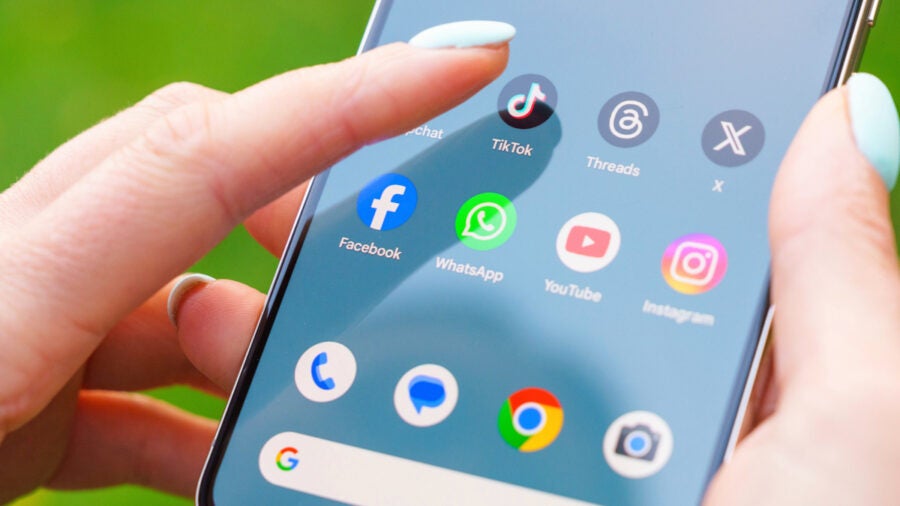
I don’t do TikTok, you’ll be unsurprised to hear. No sassy dance videos or pictures of baby hippos for me. But many consumer-facing brands absolutely do use TikTok: it’s a vital channel for marketing and, increasingly, sales – especially among younger people.
But this could all be jeopardised by the prospect of an intensified US-China trade war, particularly as anti-China sentiment is just about the only thing Democrats and Republicans can agree on.
Donald Trump has given mixed signals on banning the platform but is hardly above using TikTok as a bargaining chip. A decision is due mid-January, unless TikTok’s Chinese owner Bytedance sells the platform. And if TikTok falls foul of America, it wouldn’t be surprising if the UK follows suit.
There’s a chance the ban won’t come to pass. Just look at the long history of governments threatening tech platforms, only to stall. Governments generally get nervous about separating swathes of the population from key parts of their lives.
But if the ban does occur, the whole drama should serve as a warning for brands not to put all their eggs in one basket. This kind of political interference with a popular digital platform could even prove to be a ‘black swan’ event for social media – when an unexpected event has profound implications, as when Covid shook up or destroyed much physical retail.
There’s potential for other political crackdowns against social media, some of which have already been floated, such as Australia’s proposed restrictions for under-16s. Thinking about where these could lead makes for an intriguing thought experiment, both for business leaders and wider society.
Could a US TikTok ban – itself following a ban of TikTok in India – lead to copycat bans for this or other platforms in other countries? What about tougher financial restrictions cropping up in, say, Europe – relating to misinformation, libel, harassment or copyright infringement? What would happen to social media as a phenomenon?
What would a social media-free world look like?
Let’s imagine the US government went for the nuclear option and banned the lot. What might we expect to see?
Most likely, some people would still use the platforms anyway. There’s almost always workarounds, and it’s usually younger people who are adept at finding them. Some businesses, though, would struggle – particularly those that have grown rapidly via social media and haven’t yet diversified.
Even for the businesses that didn’t struggle immediately, growth would be harder. You don’t need viral videos on Instagram to pick up customers quickly, but for consumer-facing SMEs they can be a serious accelerant.
The world would keep turning. Companies would still reach customers, about as effectively as they do now, but competition would suffer as big businesses outmuscle SMEs in TV, print and outdoor advertising.
The kind of communication we are used to would cease to exist. But perhaps we would have access to better, higher-quality information. Opinions are divided over whether mainstream media is the source of, or antidote to, ‘fake news’, but I tend to think it’s the latter.
Regional cultural differences would broaden, but there would also be fewer ‘bubbles’. Social media makes it easier for two people living next to one another to have completely different world views and sources of facts upon which to base them. But it also makes it easier for ideas to spread globally at speed.
We would have fewer social connections, but the ones we did have would probably be deeper. While some people depend on online communities for their social health, I suspect that it also keeps more people away from in-person interactions.
And there would be less freedom of speech. Both removing a platform and enforcing a ban would clearly diminish the ability of regular folk to be heard.
Would it be a good thing?
The fact that it’s difficult to imagine a world without social media – even though I grew up without it – shows how deeply embedded it has become. I don’t know if it has made society better.
It’s certainly what adult users have chosen, although that hardly means it’s in their best interests (which is often the case – exhibit A for bad choices: the deep-fried Mars bar). Thankfully we live in a society where people are free to make mistakes.
Children, though, don’t choose social media as freely. How could they, under the crushing weight of peer pressure? And the proliferation of bullying, hate speech and misinformation suggests that even adults’ free choices have wider negative consequences.
It’s a complex issue. Even if we could get rid of it all, from TikTok to Facebook, I’m not sure that the benefits would outweigh the costs. Babies and bathwater come to mind. There are so many great things about the digital world that we’d mourn it if we lost it, that ability to reach anyone instantly, the shrinking of the world. If there’s a way to try to keep at least some of that, while protecting our kids from the worst of it, then we owe it to them to try to find it.

I don’t do TikTok, you’ll be unsurprised to hear. No sassy dance videos or pictures of baby hippos for me. But many consumer-facing brands absolutely do use TikTok: it’s a vital channel for marketing and, increasingly, sales – especially among younger people.
But this could all be jeopardised by the prospect of an intensified US-China trade war, particularly as anti-China sentiment is just about the only thing Democrats and Republicans can agree on.
Donald Trump has given mixed signals on banning the platform but is hardly above using TikTok as a bargaining chip. A decision is due mid-January, unless TikTok's Chinese owner Bytedance sells the platform. And if TikTok falls foul of America, it wouldn’t be surprising if the UK follows suit.





